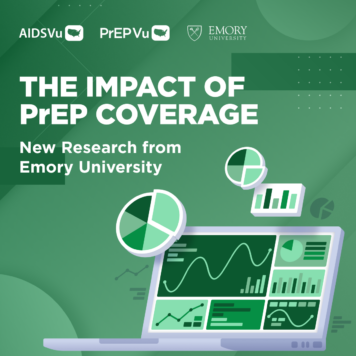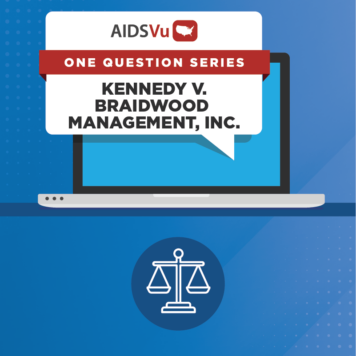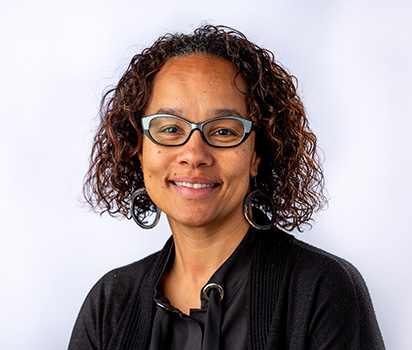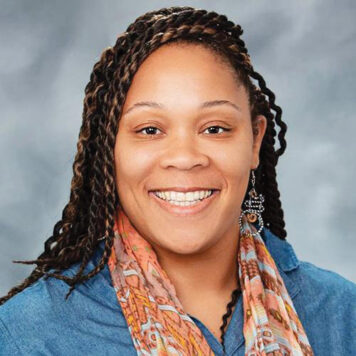Amna Osman is the CEO of Nashville CARES, an organization dedicated to ending the HIV/AIDS epidemic in Middle Tennessee by offering an array of HIV prevention and care services. Prior to serving as CEO of Nashville Cares, Osman held several public health-facing roles that placed emphasis on care and treatment for people living with HIV/AIDS.
Q: You have 24 years of experience in the public health field. What led you to focus on the HIV/AIDS space of public health, and how is the field different now compared to when you first got involved?
I started in the HIV space about 30 years ago through an internship. I am originally from Sudan, so it really sparked my interest about sexual health in general. A lot of people were passing away from AIDS at that time. When I moved to the United States to Flint, Michigan, the community faced a lot of discrimination and stigma — the fear was very intense.
I’ve been able to see the evolution of the HIV/AIDS epidemic from 30 years ago to now, and I’ve witnessed the advancements in medicine, science, and tools to end the HIV epidemic. Now, ending the HIV epidemic is very promising, but there are still barriers for folks who are disproportionately affected in Black and Brown communities. We should focus on understanding the social determinants of health and barriers that impede people who have difficulties accessing care and being retained in care. There is a whole aspect of prevention focused on educating the community and sub-populations and getting messages to them. It must A- resonate with them. B – it must prove effective in helping them get to know their status and biomedical interventions that they can really appreciate and understand. Finally, it must be culturally competent and respectful of who they are while being able to ensure that we are getting those messages out consistently.
Q: Before you became CEO of Nashville CARES, a lot of your public health work was based in Michigan. What are some of the differences you’ve experienced between the HIV epidemics in these different parts of the country?
Religion plays a core role in impeding us from talking about sexual health, let alone HIV and sexually transmitted infections. There is a lot of judgement through religious lens. We have to really think about the solutions of navigating those challenges and barriers. The stigma and discrimination are more intense in the South compared to the other places where I have worked. I worked in the Horn of Africa after leaving Kenya and in Ethiopia, and one of the things that really struck me was the amount of awareness about the HIV epidemic. Everywhere you went you saw billboards. You saw messaging. People talked about condoms, and safer sex, and how to end the HIV/AIDS epidemic among young women, girls, and other populations. They have truly taken public health strategies to really end the HIV epidemic, even though their resources were more lacking. In the South, we have the same challenges, if not more, and the role and the power of religion is so great. How do we look at that and try to partner with the faith community? We can talk about sexual health and really ensure that people really attend to their sexual health, especially when we put so much emphasis on our physical health.
Q: Tennessee is part of the ‘Deep South,’ a region that experiences a higher burden of HIV and a lower PrEP uptake compared to other regions in the country. Based on your experience at Nashville Cares, what factors do you think contribute to the health inequities faced by communities in the Deep South?
PrEP uptake is disproportionate relative to HIV burden in Black and Brown communities. We need to examine PrEP with social determinants of health and take a comprehensive and sexual health approach. When PrEP got rolled out, Black women did not see themselves taking PrEP. The marketing, the strategies, the approaches were focused on really ending the HIV epidemic in the gay community. We re-engineered the funding and reappropriating it to the populations that were at higher risk. When we started to see a spike in HIV diagnoses among Black women, PrEP did not really speak to us. Now, we are trying to educate women about PrEP. Black women have additional set of barriers that we experience. We are caregivers. We have to navigate a lot of systems for not only ourselves, but for our loved ones like children and partners. We have to address the side-effects of taking PrEP and how to administer it. We are starting to get there. We need to keep going, and we need to really talk to women in order to help them create the messaging.
Q: Nashville CARES plays a prominent role in the Tennessee AIDS Advocacy Network (TAAN). Can you tell us a little bit about TAAN, and what inspires Nashville CARES’ role in HIV/AIDS advocacy?
The Tennessee Aids Advocacy Network (TAAN) was started over a decade ago. The goal was to get all of the HIV/AIDS organizations and advocates in Tennessee to work collectively, to really talk about policies and laws that have negative consequences on people living with HIV and those at risk. It was really a way to collectively to engage our legislators to look and review policies — to be proactive, to understand and interpret how these laws and policies could affect people living with HIV and those at risk. We have been working on this for a long time, and with a very conservative legislator. It has been a difficult battle, and at times we feel very defeated. But we have continued. We have 5 chapters all throughout Tennessee, working with advocates around HIV education. We really try to get advocates to understand the power of using their voice. Educating them and linking them to policymakers, so that they can tell their stories and journeys, their successes, and barriers to success.
One of the biggest challenges that we’ve had involves working on the HIV criminalization law in Tennessee and trying to get it repealed. We were teaching legislators that it is outdated and that it criminalizes people living with HIV. It has been a process. About 4 years ago, we sat and assessed our approach and how we were engaging in this work. We felt it was important that we engaged lobbyists that had relationships with legislators – and a lot of people disagreed with that decision. Investing in a little bit of resources to get lobbyists that can help us open the doors, have conversations with and have advocates educating legislators really opened up an opportunity for us to get the full repeal we wanted. But, after engaging with our legislators, we took a step back and looked at the most important thing to take on, instead.
We dissected the law, and agreed that getting people off the sex offender registry in Tennessee would be the best start for us. Most of our advocates agreed that this would be a good first step, and a success that could really help people get housing, employment, and engage with loved ones like children, nieces, or nephews. It would also help people be able to practice their faith, because under that law, they could not do that because they were around children. The barriers and the discrimination that they were experiencing were real – getting them off of the sex offender list would help people live their lives with dignity and respect. Initially, it did not go well – we felt very defeated, but also saw hope from the long journey that we had been on. On the second attempt, we were successful in getting that item eliminated from the law, and we also established a process for people to start getting off the sex offender registry, if they didn’t have another criminal offense. The first person got off the sex offender registry easily, and we are continuing to do more of that. Advocates felt that their voice really made a difference. They are feeling motivated and excited to continue this journey, and I am hopeful that one day we will have the full repeal we originally wanted in Tennessee. It may not be as quick as we want it. We have to continue this momentum of advocates feeling very empowered and ready to take this on and continue to educate legislators. We also have a job to educate people on their right to vote, and their right to use their voice to get who they want elected to office. It requires understanding candidates and elections, understanding sexual health and public health. HIV is something that these candidates need to understand is important. It affects many people in Tennessee, with consequences that sometimes are not positive on their lives. That’s empowering. We are moving the needle in the right direction.
Q: The U.S. Conference on HIV/AIDS (USCHA) starts on September 12, and this year’s theme is ‘Southern Joy.’ What is one message you have for individuals either living with or at risk for HIV in the South?
I would congratulate and commend everyone working in the South and contributing to ending the HIV epidemic because it is hard work. Sometimes it is defeating work, but the successes that we have been able to achieve collectively have been extremely powerful and make profound impacts on the lives of people living with HIV and those at risk. We need to come together. We need to work together. We need to care for each other. We need to love each other. And we need to lead collectively. With all of this, we can really see the change we want to see in the South, and I am hopeful that if we see success, we will be able to offer joy, happiness, and life with dignity and respect to all the people living with HIV, and those at risk. We will continue to see success. And I am very excited to be part of this journey and working with amazing people and see all that we will accomplish in the future.




